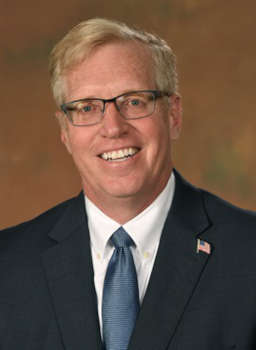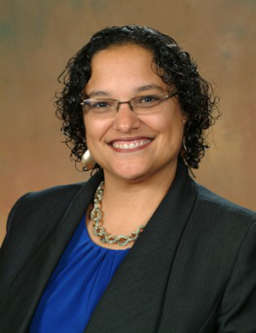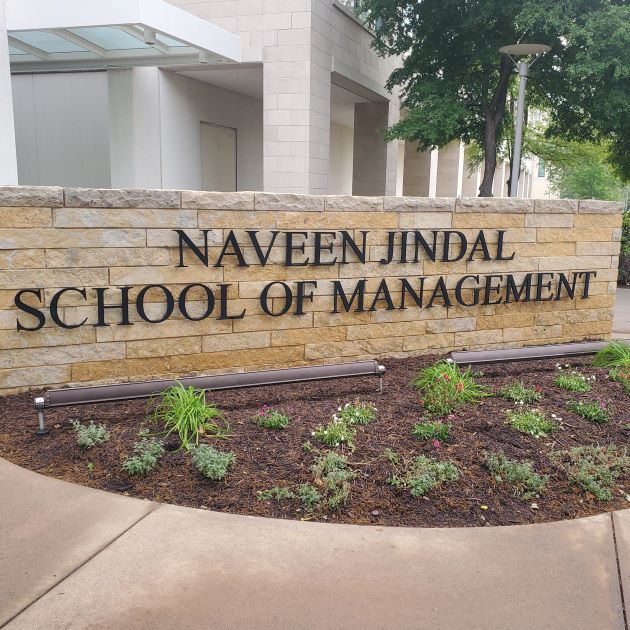Changes Offer Maximum Flexibility and Convenience for Students
Executive Education administrators at the Naveen Jindal School of Management have streamlined the Global Leadership MBA (GLEMBA) program to offer students maximum flexibility and convenience — and a lower price. The changes have gone into effect this fall.

The most visible change to GLEMBA will be that it is becoming a 100 percent online offering. John Barden, associate dean for Executive Education at the Jindal School, said the program has pivoted to meet the needs of millennials, who look for high technology, flexibility and access in all areas of their lives, including education.
“They want to be totally flexible, they want everything on their mobile devices, they want to be able to plug in and go,” he said. “That’s what we have created.”
Exec Ed also is lowering program tuition, from $65,000 to $53,000.
Until now, GLEMBA was 70 percent online, according to Rhonda Bush, the new GLEMBA program director. “What we found in looking at the market,” she said “was that more and more students wanted the flexibility of fitting an online program with their professional and personal needs.”

Previously, students met face-to-face for a weeklong retreat in each of their five semesters. From a curriculum standpoint, only the retreats will be eliminated. Everything else will stay the same, or has been improved to meet the demands of both students and the marketplace.
Orientation in the first semester’s retreat will be replaced with what Bush calls an “onboarding process.”
“It will be self-paced,” she said. “Students will have exactly the same components they had at orientation, but in a virtual format — one that won’t cause a disruption in their lifestyles.”
Face-to-face interactions students had with faculty during the retreats in previous years have been replaced with video introductions for each course as well as a variety of peer-to-peer and faculty-led web conferences. These online discussions not only increase flexibility in the course structure but also are opportunities for students to learn how to work with others and understand the power of learning from one’s peers, Bush said.
Students will interact virtually for group work on Cisco Webex, a video collaboration and conferencing app. Optional in-person networking events will be offered for local students — as well as those who may happen to be in town.

The program’s new structure, Bush said, benefits many students who cannot come to campus often, including those who have to travel frequently for jobs, are deployed as active and reserve military members and cannot commit to a Friday and Saturday program, and those who have had to relocate during their degree program.
Other changes to GLEMBA include restructured admission requirements, a more flexible intake process and the ability for students to earn graduate academic certificates in addition to the MBA degree.
The program does not require the GRE or the GMAT graduate school entry exam, and it now requires students to have three years’ professional business experience — down from five. JSOM administrators made the change after determining that the program is best suited for those who aspire to executive roles and may not already have extensive experience.
The Executive MBA program, which requires at least eight years of experience, is better suited for students currently in leadership positions.
Previously, GLEMBA enrolled students only in the fall semester. Now they will be able to enroll in fall, spring or summer semesters.
Another change intended to give graduates an advantage in the marketplace is the ability to earn graduate-level academic certificates while earning the MBA degree. All GLEMBA graduates have a concentration in international management during the first year of study. In year two, students can enroll in concentration areas that can lead to an academic certificate in either Negotiation and Meditation, Organizational Consulting or Strategic Human Resources.
Other concentration areas available to GLEMBA students are business analytics, finance, project management and transformational leadership. These do not lead to certificates. Students also can choose among courses from the various concentrations to customize their degrees.
One thing that will stay the same, Bush said, is the rigor of a truly global MBA program, one that gives students the ability to understand how to market to different cultures and work with employees who have international backgrounds.
“No matter what you do, you cannot do business these days without interacting on an international level and having an international perspective,” Bush said. “Whether you look at the supply chain or your customers, every company has an international component. Most GLEMBA faculty have been teaching in GLEMBA for five to 10 years. We are choosing faculty that not only have the global perspective but also have online experience to match our new format.”





